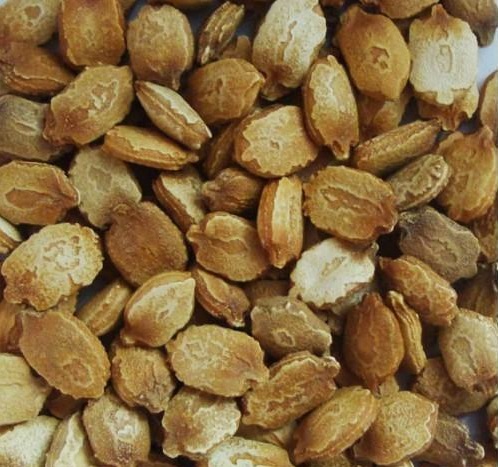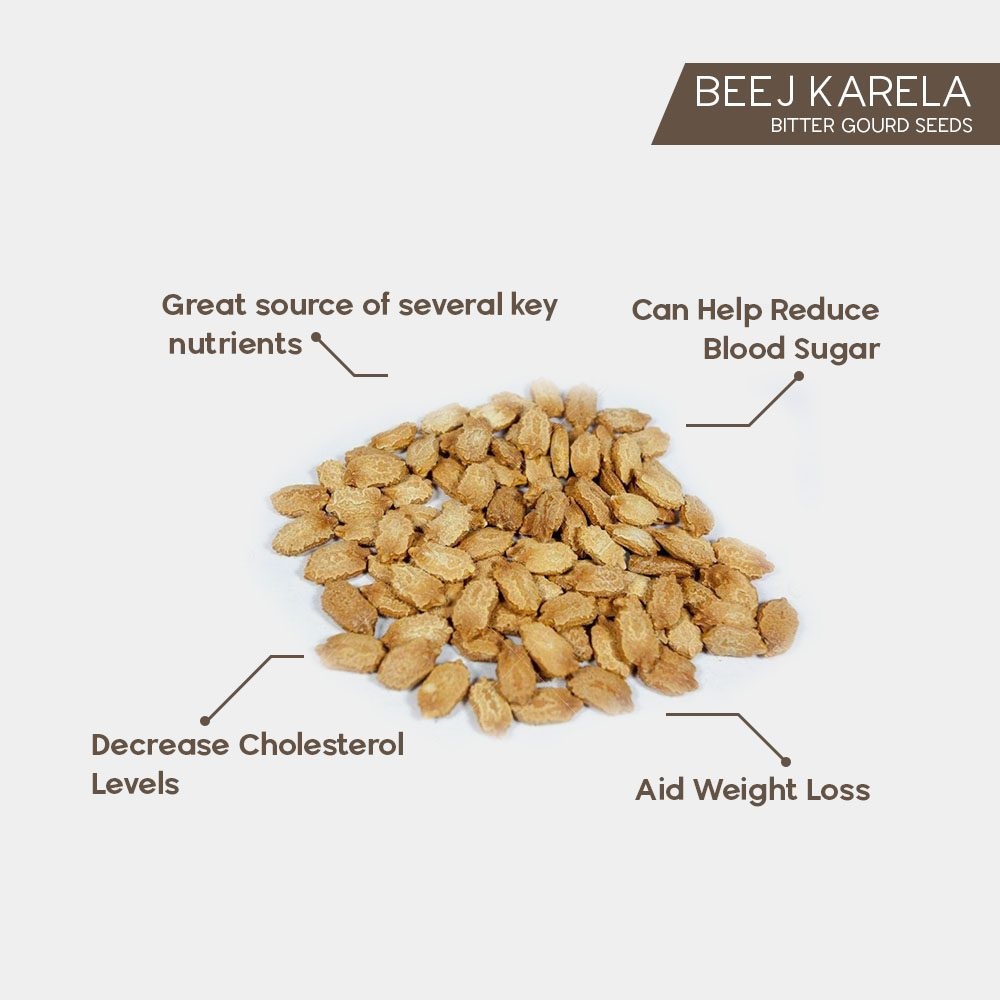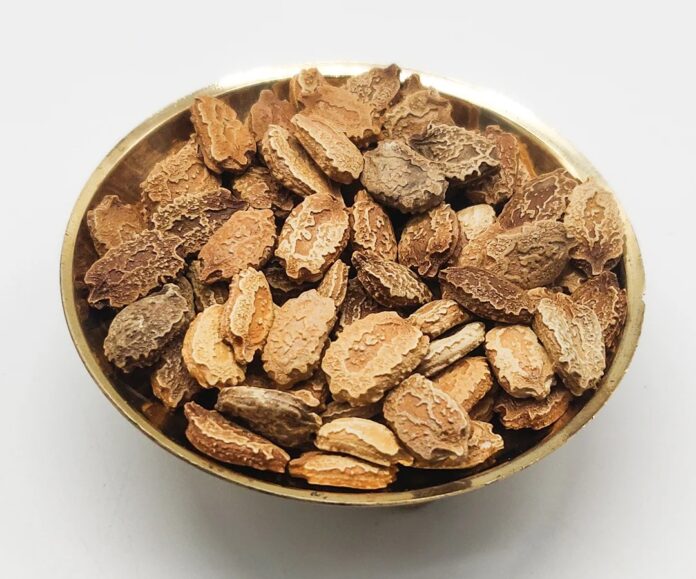INTRODUCTION
Bitter gourd seed refers to the seed found inside the fruit of the bitter gourd (Momordica charantia), also known as bitter melon. The seeds are typically flat, oblong, and hard, enclosed within the fruit’s white or red pulp. Bitter gourd seeds contain several bioactive compounds, including proteins, oils, and saponins. They are sometimes used in traditional medicine, though they can be bitter and slightly toxic when consumed in large amounts.
Forms
Bitter gourd seeds can be used or processed in various forms, including:

- Raw Seeds: Found inside fresh bitter gourd, typically discarded or sometimes consumed.
- Dried Seeds: Used in herbal medicines or ground into powder.
- Powder: The seeds can be ground into a fine powder and used in traditional remedies.
- Oil: Bitter gourd seed oil is extracted and used for its medicinal properties.
- Capsules: Available as dietary supplements, often for blood sugar regulation or other health benefits.
- Paste: Ground seeds mixed with other ingredients for external application in traditional practices.
Health Benefits
Bitter gourd seeds offer several potential health benefits due to their rich nutrient profile and bioactive compounds. Some of the key benefits include:
Blood Sugar Regulation
Bitter gourd seeds contain polypeptide-p, a plant insulin-like compound that helps regulate glucose levels. They may also improve insulin sensitivity, which is beneficial for managing diabetes. Studies suggest that regular consumption can reduce fasting blood glucose and improve overall glycemic control.
Antioxidant Properties
The seeds are rich in antioxidants like flavonoids and phenolic compounds, which help neutralize free radicals in the body. By reducing oxidative stress, these antioxidants can lower the risk of chronic conditions such as heart disease, cancer, and neurodegenerative diseases.
Anti-inflammatory Effects
Bitter gourd seeds have been found to contain bioactive compounds with strong anti-inflammatory properties. These compounds help reduce inflammation in the body, which can be beneficial for conditions like arthritis and other inflammatory diseases.
Digestive Health

The seeds are high in dietary fiber, which promotes good digestion and bowel regularity. Fiber helps to bulk up the stool and can prevent constipation. The seeds may also support gut health by promoting beneficial bacteria.
Liver Health
Bitter gourd seeds may offer hepatoprotective effects, helping to protect the liver from damage caused by toxins and free radicals. They support the liver’s natural detoxification processes, and some studies indicate they may help reduce fatty liver and improve overall liver function.
Immune Boosting
Bitter gourd seeds contain important vitamins such as vitamin C, which boosts the immune system by promoting the production of white blood cells and acting as an antioxidant. This helps the body defend against infections and illnesses.
Weight Management
Compounds in bitter gourd seeds, such as conjugated linolenic acid, may help regulate fat metabolism and reduce fat storage. The seeds can also promote satiety, reducing calorie intake, which can aid in weight loss efforts.
Liver Detoxification & Hangover Relief
One can get rid of a major hangover by drinking bitter gourd juice, which clears out the alcohol intoxication that has built up in the liver. The liver benefits from and is detoxified by bitter gourd. It improves liver enzymes and works wonders for hangovers, and it is advantageous for the bladder and intestines to consume it.
Heals Wounds & Injuries
Strong anti-inflammatory properties are present in bitter gourds. Because it controls blood flow and coagulation, large-scale infections are reduced, and wounds heal more quickly.
Side Effects
While bitter gourd seeds offer health benefits, they may also have some potential side effects, especially when consumed in excess or by certain individuals. Here are some possible side effects:

- Toxicity in Large Quantities
- Hypoglycemia
- Digestive Issues
- Allergic Reactions
- Pregnancy Concerns
- Hematological Effects (Favism)
- Interaction with Medications




